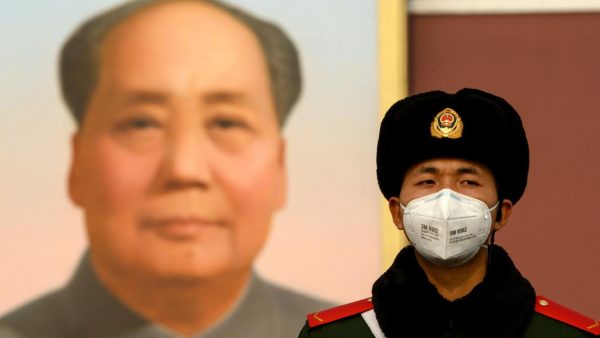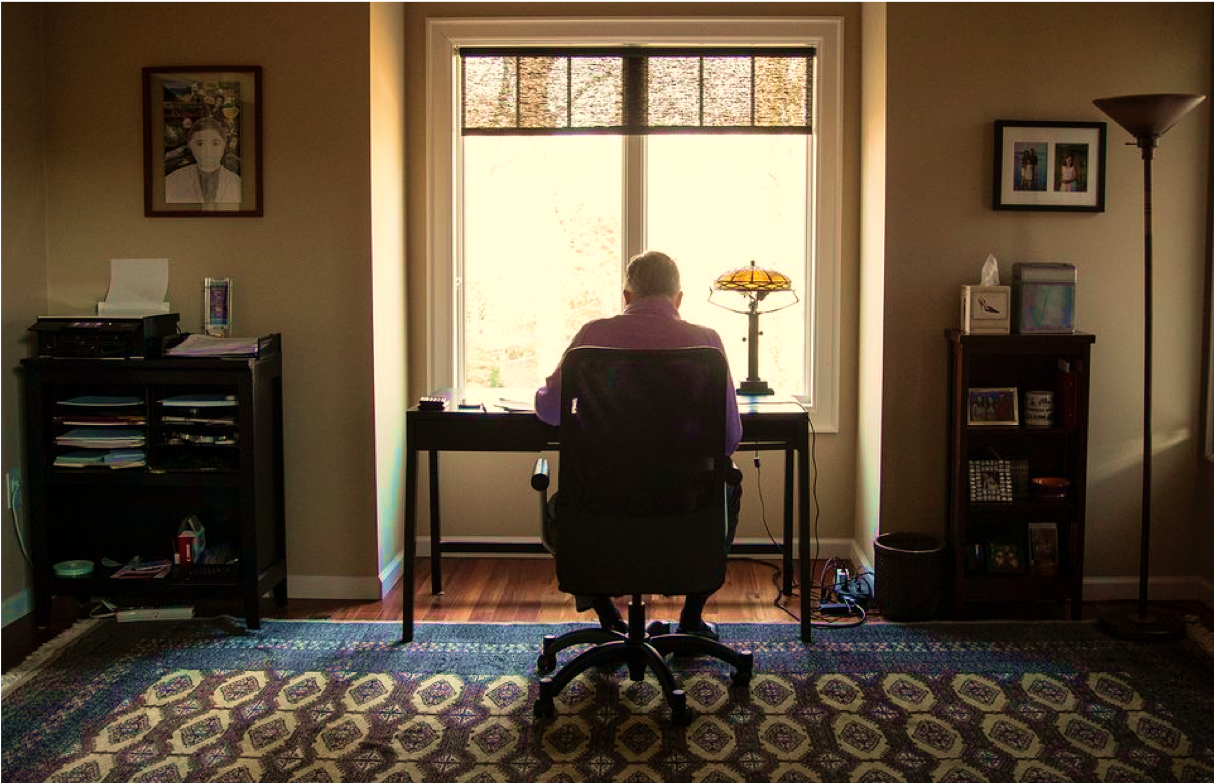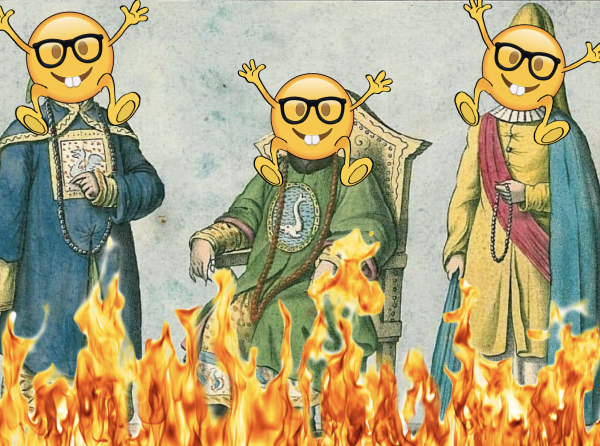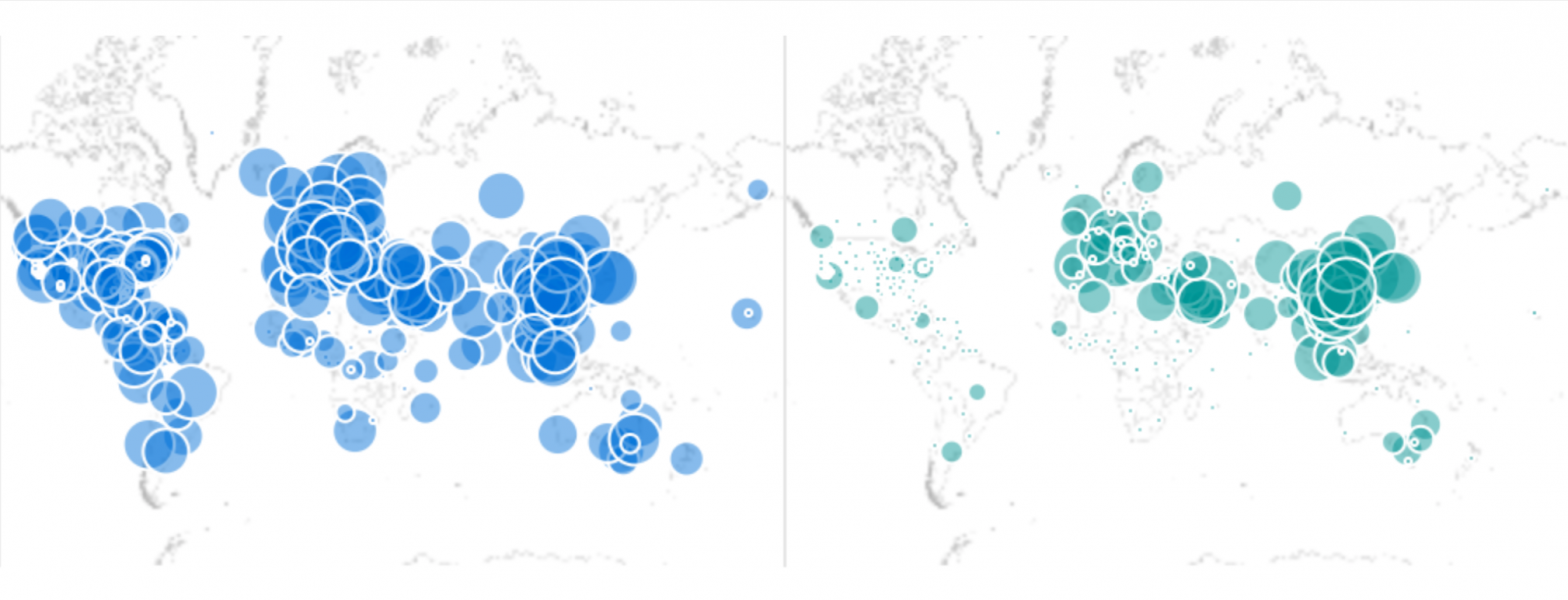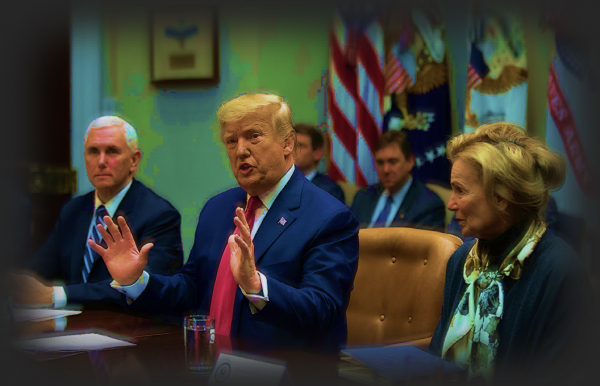The decisive move will show the CPC we mean business.
Our Calamitous Century
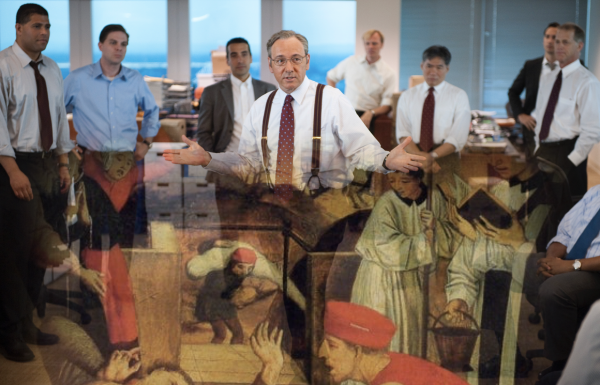
We blew it. Normies are paying a heavy price.
Let me tell you Mr. Sullivan. Do you care to know why I earn the big bucks? I’m here for one reason and one reason alone. I’m here to guess what the music might do a week, a month, a year from now. That’s it, nothing more, and standing here tonight, I’m afraid that I don’t hear a thing.
—John Tuld, Margin Call
As centuries go, this one shaped up to be a pretty bad one for elites. Economic disruptions, populist uprisings, intensifying animosity between global leaders, embarrassing defeats in the Middle East, a pandemic which frustrates standard operating procedures, revolutions in media which render futile all attempts to contain “fake news”—and that’s not even counting the rogue pope in the Vatican.
Indeed, if history was a game of drawing lots, those who lived in this century—that is to say, the years between 1350 and 1450 A.D.—drew among the shortest of straws. It was, as Barbara Tuchman wrote in her now apparently prescient history, A Distant Mirror (1978), a “Calamitous Century.” Serial catastrophes discredited the pieties of the feudal world and ushered in the end of that age, bringing Europe to the threshold of the Renaissance and Reformation. The stage was set for the eventual emergence of the modern order four centuries later.
But, fortunately, we who are lucky enough to live in the 21st century are not vulnerable to the retrograde errors of the late medieval world. We have the benefit of modern expertise, scientific competence, and technocracy to ensure cataclysms like those in the late medieval centuries won’t recur…right?
One would have thought so at the threshold of this millennium. But, 20 years in, things are not shaping up the way they were supposed to.
Fake Expertise
As moderns, we look back at the medieval age as benighted and ignorant—ill-equipped to deal with reality as it is, shrouded in superstition and oppressive inbred hierarchies. So unlike our time. And yet what are we to make of the underwhelming performance from the experts thus far this century? Why does history seem like it may be repeating itself? Is it possible we have fallen into a new modern variation of superstition and inbred hierarchies?
Let me suggest that the profound disruptions which ushered in this millennium and have since intensified are not flukes, but foreshadowings of a potentially new calamitous era. Ours is a moment in which Minerva’s owl may be taking flight, but from these dizzying heights we may also see what was not so obvious at the beginning of this century.
For me it happened in 2005.
My wife and I had just married, and we thought it might be interesting to see what homes were on the market. All you need to know about what happened next is deducible from the fact that it was 2005 and we lived in Southern California at the heart of the housing bubble. After the sticker shock, I did a little Zillow research and realized quickly that the economy would soon suffer a major correction. The trend in housing prices was, as they say in my profession, a metric showing a process that was out of control. And out-of-control processes eventually correct themselves.
So we holed ourselves up in a small apartment and waited for the inevitable. What I learned in the meantime about what we think of as expertise and managerial competence helped stiffen me for the ensuing two decades. We eventually got our house in 2010 as a bank-owned foreclosure, for half the price the former owners purchased at the peak of the market.
Not long after that I began contributing to online journals, essentially applying what I learned and predicting a series of bubbles and collapses in all kinds of diverse areas, each more significant than the other precisely because our understanding of stability and order is at once decades out of date and simultaneously lacking in historic or civilizational memory. This makes us easy victims of black swans precisely because our categories are limited to a deep knowledge of very short windows of immediate prior history.
Because I happen to work in an industry where pattern recognition and machine learning are part of our core competency, these categories were particularly intuitive to me at the time. As I like to tell my friends, I see a black swan every day in my laboratory, because all a black swan means is that an event occurred in the real world that was not sufficiently represented in the data set upon which the algorithm depends for its model.
As our A.I. gets better, and as our expertise becomes less about prudence and more about reductive algorithmic thinking, our data sets increase. But we don’t eliminate the black swan event: we just push it out further in time. Human nature being what it is when uninformed by prudence, the longer the reckoning is pushed out, the more comfortable we feel over-leveraging ourselves in those predictions. This ensures that, when the reckoning does come, the disruption is proportional to the longer delay—in short, we purchase increased short-term predictability at the cost of a more catastrophic long-term disruption.
What Might Have Been
The 21st century, therefore, promises to be a century of collapsing bubbles in various areas—economic, political, cultural, biological, logistical—each of increasing magnitude if, perhaps, with longer delays between events. Because the thing about science (and, Steven Pinkerites, please pay attention) is that it’s great at understanding what it can measure, bad at understanding what it cannot measure, and tragically ill-equipped to recognize when it doesn’t have the ability to measure what it claims competence to understand. In the best cases, science eventually gets better and we understand what we didn’t before. In the worst cases it fails to get better, and so fails to help us evade the consequences of our former premature technocratic judgments.
At this very moment our global economy is experiencing unprecedented disruptions because of, among other reasons, the cumulative effect of economic decisions that so privilege cost efficiency over prudence as to have located the primary source of our global supply chains in a habitually dishonest and sub-optimally competent totalitarian regime. This same regime, circumstances quite plausibly suggest, originated and mismanaged the very source of the COVID-19 contagion.
This concatenation of irrational arrangements is the superstition of our modern age. The 21st century appears to be the calamitous century through which the resulting disruptive consequences will repeatedly be roiling. Those in elite circles are invested in maintaining the illusion of competence, even when the reality is laughing at them. Consequently we can look forward to runs on the lipstick market as our experts continue to cycle through their inventory of pigs.
It didn’t have to be this way. But one of the things you realize when you peek at the man behind the curtain is that our entire political and economic ecology is leveraged all in on one particularly myopic understanding of expertise, because, in the short term, it delivers to us what we want. After all, there wouldn’t have been a housing bust if there wasn’t a large consumer base made up of folks comfortable with buying more house than they could afford so they could flip it and move their income upward at ridiculous rates. And these “experts” became experts precisely because they seemed to make this balancing act possible.
The Enemy Is Us
Much of expertise today is about mastering the art of overpromising to a consumer and voter base that wants to be overpromised to. This is why perhaps the best film about our calamitous century is probably one you haven’t watched—Margin Call.
Margin Call is nominally about the collapse of the financial sector in the first stages of the bust. But it’s really about the century we live in, and about us. Not just because it captures the venal myopia of those who made the decisions that led to the bust, but also because it portrays why they made those decisions—precisely because we wanted them to.
In the middle act of the movie, broker Will Emerson, played by Paul Bettany, pulls back the curtain to expose the man behind—and that man is us:
Jesus Seth, listen…. If people want to live like this in their cars and their big f*cking houses they can’t even pay for, then you’re necessary. The only reason they continue living like kings is because we got our fingers on the scale in their favor. Take my hand off, well then the whole world gets really f*cking fair really f*cking quickly and no one wants that. They say they do but they don’t. They want what we have to give them, but they also want, you know, to play innocent and pretend they have no idea where it came from and that’s more hypocrisy than I’m willing to swallow, so f*ck ’em. F*ck normal people.
One of the primary reasons why the feudal order fell was because the high regard that the first and second estates had to have in the eyes of the common peasant was not sustainable in light of the perfect storm of events unleashed during the Calamitous Century. It was impossible for the Church, the Throne, and Chivalry to survive popes, anti-popes, mad kings, and knights mowed down by English yeomen longbows, French canon, superior Ottoman battle tactics and, of course, waves of Black Plague.
By 1500 the feudal emperor was naked, and the stage was set for the next 450 years of turmoil that would, thankfully, settle into a stable liberal order (at least for a time).
But the irony of the disaster unfolding around us now is that it isn’t just a failure of elites in general, but of a particular kind of elitism that perfected the economics and politics of overpromising—of giving consumers and voters what they wanted whether it was good for us or not. That fault is, therefore, not just with the elite, but with the judgment of the consumer and the voter that ultimately wanted what has caused the systemic failures now rotting the system.
Memory
This new feudal order isn’t hierarchical. It’s ultimately a debased form of egalitarianism that hides itself behind anti-elitism, which is why the actual remedy is so elusive. It resides precisely in that part of us modernity has taught us doesn’t exist: the part capable of shame.
That part was severed from us some time ago. But it was rooted in an understanding of the self as a recipient of civilizational memory—a history of culture and norms held up by now-outdated notions of sanctity and obligation that required us to hold ourselves up to a standard our forebears passed on to us.
Being consequentialist utilitarians, we are only interested in such things to the extent the value proposition merited our buy-in. And who wants to sign up for obligations without any tangible personal return? Especially when you have an expertise class that tells you you don’t have to?
We can blame the experts, but the experts became experts because they were selling us what we wanted to buy, and as a consequence we severed the bond of today from the wisdom of the past.
Arguably, the most tragic character in Margin Call is Kevin Spacey’s Sam Rogers—a creature of a previous age in the financial industry that based investment decisions on fiscal prudence grounded in inherited memory and experience. Rogers was shoved into middle management to make room for the young Turks who promised that finance vehicles based on the new tools of quantitative risk analysis would make the company brilliantly successful.
As the company is falling around everyone’s ears, Rogers is constantly refraining different variations on “I told you so” to explain to his young employees what is happening as it’s playing out. “For those of you who don’t know, this is what a fire sale looks like,” says Rogers as he tells his disoriented co-workers why they are about to sell the company’s worthless assets to anyone who will buy them.
The Gods of the Copybook Headings
The irony of our moment is it is about to repeat a variation of the Calamitous Century but for very different reasons. The rigid hierarchies of feudalism were necessary amid the turmoil of the 1,000 years after 476 A.D. when Rome fell, but proved increasingly inept at dealing with the crises of the last century of that order’s reign. Today our modern hierarchies are meritocratic, we are assured, but based upon definitions of merit that have bred out any notion of inherited wisdom or prudence, and over-optimized to serve the value creation economy that defines value by the narrow and ever-shifting appetites of the market. And “the market” is each of us.
As E. Digby Baltzell wrote in the classic treatise on modern elitism, The Protestant Establishment (1964), “History is a graveyard of classes which have preferred caste privilege to leadership.” Ours may be the first middle class in history to bury itself under its own excesses.
Our education as a people has become a system of selective forgetting of inheritances that were assumed irrelevant and therefore unnecessary sources of inefficiency in the value creation economy. But, right now, we could use a lot more of the things that used to be the hallmark of a previous age of self-understanding: church participation, public-minded civics and expertise, and Americans engaged in the local platoons that allow for social stability and flourishing regardless of whether it’s a bellicose populist or a benighted technocrat inhabiting the White House.
Instead, we have a thriving business and political consulting industrial complex, bloated academic institutions, and a vast global supply chain over-optimized for cost efficiency and under-optimized for anti-fragility, which has become a profound metaphor for the distorted sense of what we think of as valuable.
At the end of Margin Call, Eric Dale, played by Stanley Tucci, reflects on the futile waste the financial collapse has made of his career by meditating on his earlier career as an engineer.
Do you know I built a bridge once? A bridge. I was an engineer by trade. It went from Dills Bottom, Ohio to Moundsville, West Virginia. It spanned 912 feet above the Ohio River. Twelve thousand, one hundred people used this thing a day and it cut out 35 miles of extra driving each way between Wheeling and New Martinsville. That’s a combined 847,000 miles of driving a day or 25,410,000 miles a month and 304,920,000 miles a year saved. Over the life of that one bridge, that’s 6,708,240,000 miles that hadn’t had to be driven. That’s 134,164,800 hours or 559,020 days. So that one little bridge has saved the people of those two communities a combined 1,531 years of their lives not wasted in a f*cking car. One thousand, five hundred and thirty-one years!
The distortions of a social order that over-optimized for an age that has been swept away by its own vices become apparent eventually, but often too late. Eric Dale’s awareness that a life that could have been dedicated to serving the good had been diverted to a career dedicated to financial vaporware deserves reflection. It applies not just to a catastrophic economic moment, but to an entire century for which that moment appears to have been but a foreshadowing.
As a great critic of modernity once wrote, things have been lost that should not have been forgotten. If we are to remedy our condition, we must undertake the long hard work of remembering again.
The American Mind presents a range of perspectives. Views are writers’ own and do not necessarily represent those of The Claremont Institute.
The American Mind is a publication of the Claremont Institute, a non-profit 501(c)(3) organization, dedicated to restoring the principles of the American Founding to their rightful, preeminent authority in our national life. Interested in supporting our work? Gifts to the Claremont Institute are tax-deductible.
In wars, men die.
For the first time in centuries, we’re bringing it all back home.
Facing up to the failed state of America's mandarin class
Don’t let the Left use your panic for their gain.
It’s complicated, but we’ve been preparing for this.


